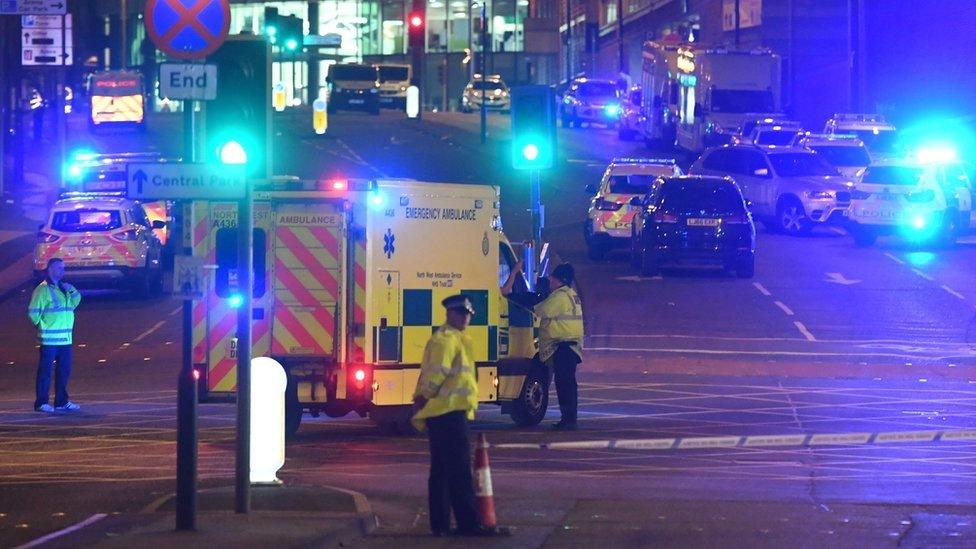Manchester attack: Victims react to attack Kerslake Report findings
- Published
Survivor Martin Hibbert says he is "sure" firefighters "would have been a great help" in the immediate aftermath of the blast
A father paralysed in the Manchester Arena bombing says a report highlighting the "poor communication" of emergency services after the blast has provided "no answers".
Martin Hibbert, 41, was injured when suicide bomber Salman Abedi detonated a home-made device after an Ariana Grande concert last May.
The blast killed 22 people and injured more than 700 others.
The response of paramedics, police, the fire service and areas of the media were reviewed in the report by Lord Kerslake, external, which meant victims' families and survivors were "listened to" but it has left them with a "massive mixture of feelings".

'I get so angry'
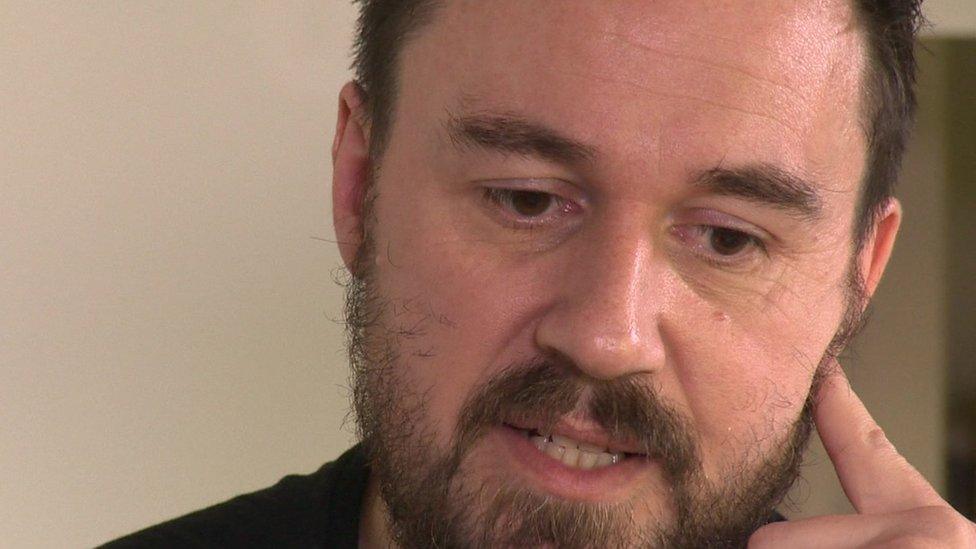
Martin Hibbert still questions why he was left untreated for so long
Mr Hibbert, who was injured along with his teenage daughter, says a security guard and first aider who saved his life told him he wasn't moved for up to an hour.
"When I got the report I was very disappointed that there are still no answers" about why he was left untreated for so long.
While he lay "bleeding to death" he could see his daughter breathing when "somebody placed a blanket over her to suggest that she has died".
"I am battling to stay alive but I alert the guy that is holding a pad to my neck to say she is still breathing and the blanket gets taken off and she is taken out.
"What I get so angry about is if I had lost consciousness or had not managed to stay alive or to sum up the energy to signal that she was still breathing, my daughter wouldn't be here with us now."
Mr Hibbert, from Bolton, says first aiders were not equipped for "battlefield" conditions.
"The people that saved lives that day were first aiders, who had first aid kits on them.
"Somebody made a decision not to allow people to come in. Paramedics that could have dealt with that situation better with the right equipment."

'Can't turn back clock'
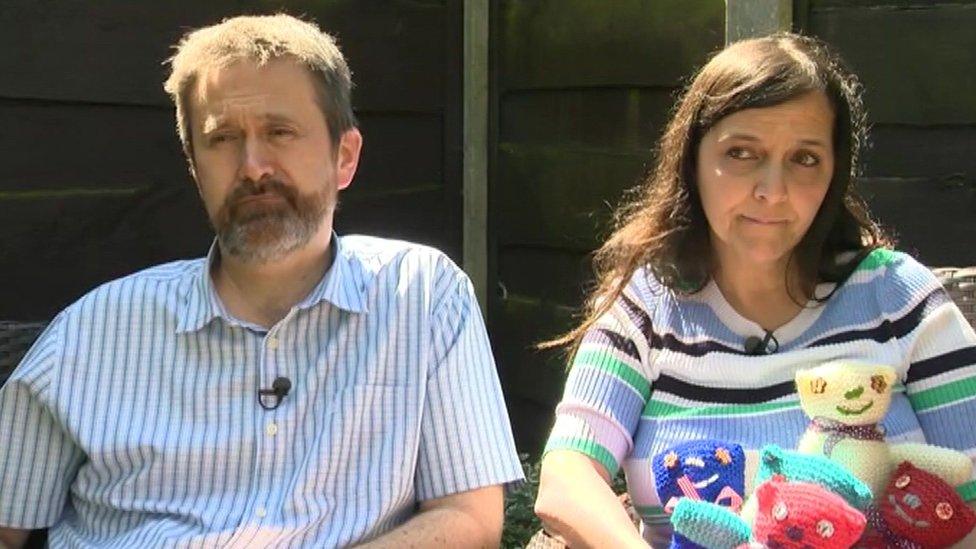
Figen Murray, with husband Stuart, says the media's code of ethics should be tightened
Figen Murray, whose 29-year-old son Martyn Hett died in the attack, says she was "grateful" for the report and felt "listened to" and "reassured".
Mrs Murray's family had complained about their treatment by some sections of the media.
She says the media's code of ethics should be tightened and some journalists need to use "basic human decency".
Her 16-year-old daughter answered the door to a reporter at the family home who offered their condolences and asked if she wanted to talk about Mr Hett before the family had officially been told that he had died.
"To put a young person in that position is unforgivable, it's totally unethical," she says.
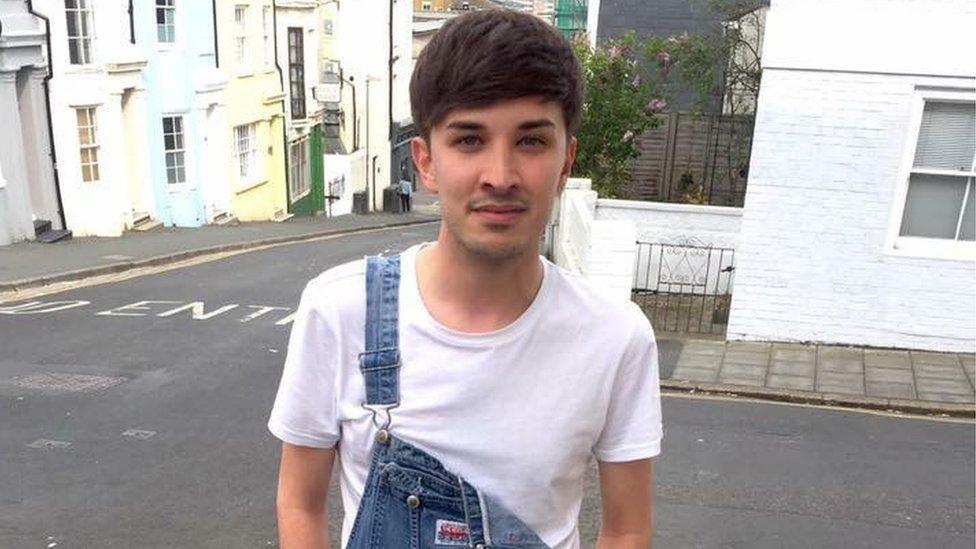
Martyn Hett attended Priestnall High School in Heaton Mersey, graduating in 2005
As well as reviewing the media, the report found Greater Manchester Fire Service were "out of the loop" and took two hours to attend the scene of the deadly blast.
"What happened has happened. Nobody can turn the clock back, but obviously no doubt the fire service will vastly improve their procedures after what happened," Mrs Murray from Stockport says.
On the night of the bombing she tried "about 26 times" before getting through to an information helpline, which was criticised in the report.
The family also had problems with getting financial and mental health support but Mrs Murray praised police family liaison officers.

'Huge gaps'
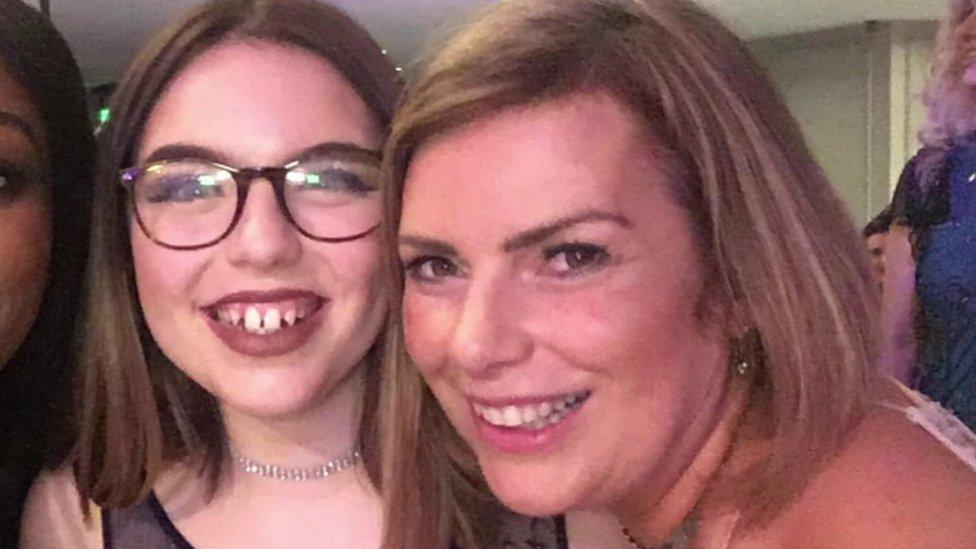
Ruth and Emily Murrell were both in hospital for weeks following the attack
Ruth Murrell, who spent nearly five weeks in hospital along with her daughter Emily, after they were injured in the attack, says the report has given her "a massive, massive mixture of feelings".
"There was a lot of jargon in there... I think there were huge gaps in there, so that kind of caused problems with the fact that the lack of communication between the police and the fire brigade.
"There was an emergency number that was set up for the friends and relatives of the victims or if anybody was missing.
"People were ringing up enquiring about loved ones and were given several reference numbers or even in some cases told to just drive round to the hospitals.
"It just devastates me to think of the people who didn't survive, the families left not knowing anything."
Ms Murrell, from Copster Green in Lancashire, says she had ended up paying for private treatment for Post Traumatic Stress Disorder.
"We were being sent in all different directions... It wasn't what we needed.
"I think the three months or so that I was just virtually suicidal needn't have happened."
She says she was "quite horrified" at how much they were hounded by some of the media while in hospital.
"When Emily and I were treated in hospital, bearing in mind we were in for nearly five weeks, we were bombarded with anonymous, no caller ID numbers and it was the bigger newspapers wanting interviews."
Ms Murrell says the report caused "massive upset because it just brings everything back up again".
"At the same time a little bit of anger because there's certain things that we hadn't realised at the time on the night.
"Now we know things could have been different, that's conjured up a real mixture of feelings in us - anger, upset - but at the same time, people who did things right and people who did things well, we've got utmost praise for them so a massive, massive mixture of feelings."
- Published27 March 2018
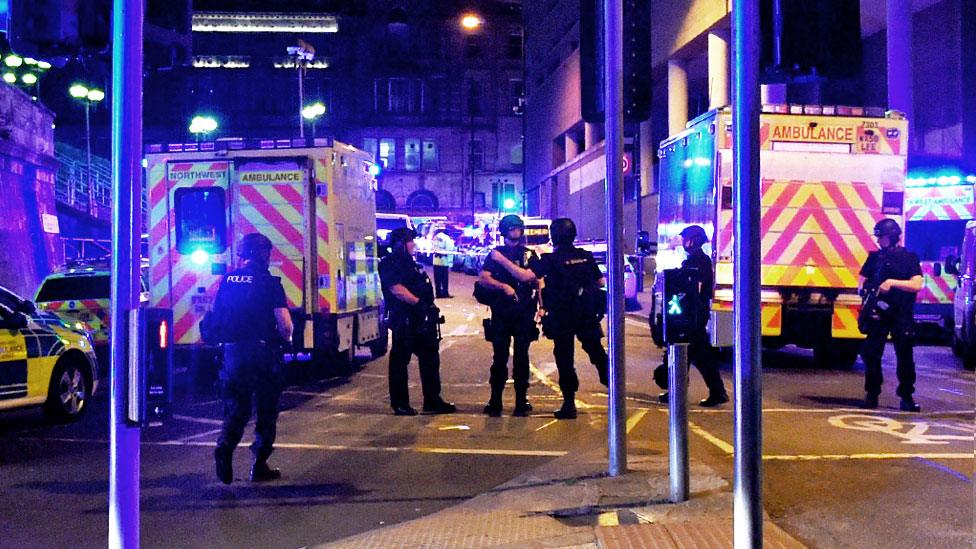
- Published3 November 2022

- Published12 January 2018
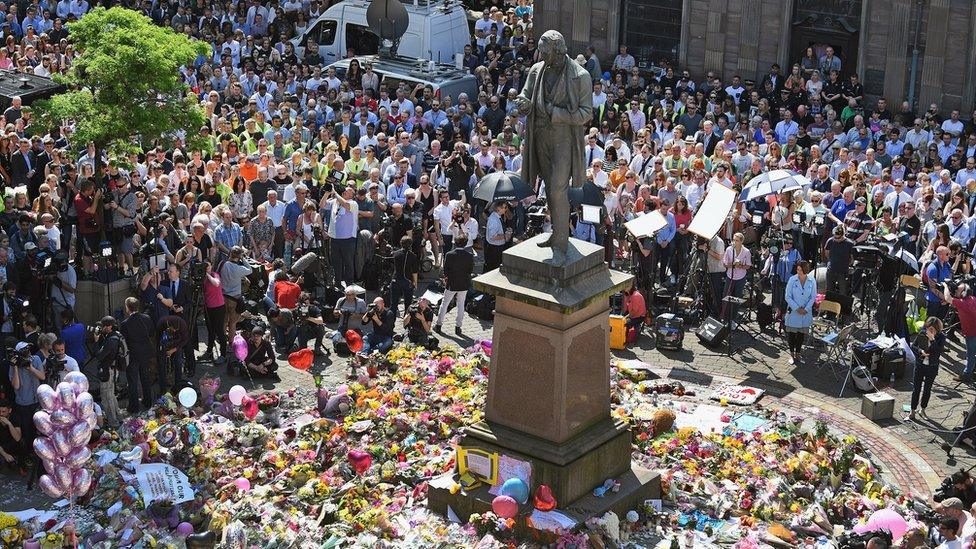
- Published7 November 2017
